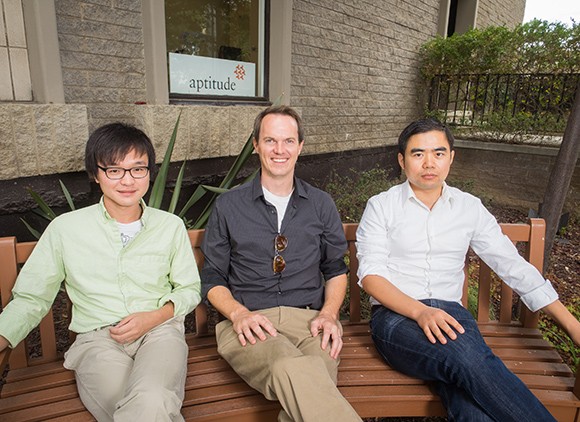Aptitude receives $54 million for diagnostic platform
IN THIS ARTICLE
- Latest news Topic
- Jorge Mercado Author
By Jorge Mercado Thursday, April 27th, 2023

COVID is transitioning from a pandemic state to an endemic one and as a result, life is returning more and more back to normal.
Businesses are open, gatherings are no longer discouraged and people can enjoy many of the activities they enjoyed before 2020.
But while it may not be a pandemic anymore, tracking COVID and helping people diagnose themselves accurately and quickly so that they can get the correct treatment is still just as important.
Helping fulfill that goal is Aptitude Medical, who recently, on April 26, was awarded as much as $54 million from the Biomedical Advanced Research and Development Authority to fund its platform capable of developing over-the-counter molecular diagnostics capable of delivering lab-quality results in 15-30 minutes while approaching the cost of antigen tests.
“Those PCR antigen tests, they just aren’t very high performance. We see false positives, false negatives and when you’re talking about prescribing something like Paxlovid as a treatment, it’s more effective the earlier it is given, so this is still very important,” co-founder and CEO of Aptitude Medical, Scott Ferguson, told the Business Times.
“Diagnostics are still a critical element of delivering a health solution that can be effective in the face ongoing life with COVID and other diseases.”
Ferguson co-founded Aptitude with Jinpeng Wang and Jackson Gong back in 2011. The three met at UCSB as they were all looking to finish their Ph.D programs at the school.
A spin-out of UCSB, the trio have built Aptitude out to house 40 employees in its Goleta office and just recently announced its biggest win with that $54 million award from BARDA, a subsection of the Administration for Strategic Preparedness and Response within the U.S. Department of Health and Human Services.
The company has no plans to move from Santa Barbara either, with Ferguson stating it is “a great place to set up nurture and grow companies.”
The funding will leverage advancements achieved by Aptitude’s testing platform, Metrix, through $19.6 million in funding to develop and validate at-home COVID and COVID/Flu tests.
Just last year, Aptitude, mostly a pre-revenue company, saw its Metrix COVID-19 Test become the first product developed by the company to receive Emergency Use Authorization from the FDA. The funding will go toward getting the full authorization.
“I know we have been in what feels like stealth mode, but we are fortunate to have seen many wins in our time. We’re thrilled to work with BARDA and we’ve really just begun to warm up here so I think the future is very bright,” Ferguson said.
The company’s Metrix COVID test was the first molecular test to become available on the market. It can use both saliva or swab samples to determine if one is sick and is about “1,000 times more sensitive than antigen tests.”
“That allows you to detect the disease earlier, it allows you to not have so many false positives or false negatives and you can use this on an asymptomatic population and get good high-quality results,” Ferguson said.
Though the Metrix test is still mostly just sold from business to business, the ultimate goal, Ferguson said, is to make it as accessible as current PCR tests for the average person.
“COVID has really changed and caused a fundamental shift in the healthcare landscape. For the past few years, we have had hundreds of millions of people run tests on themselves,” Ferguson said.
“This gives people the chance to take their health into their own hands.”
He mentioned that regulatory services, like the Federal Drug Administration, have also seen the positives of people being able to test themselves.
This means that the future could be one where, instead of someone waking up sick and just hoping and thinking it isn’t anything that serious, they could find out exactly what disease they have in as little as 15 minutes.
Because while about $20 million of that funding is for COVID, the other $34.1 million allocated is to develop additional multiplex tests for other infectious disease threats, something that Ferguson is excited about.
“The future of being able to access critical health information about yourself is bright and I think we’re headed into a more distributed healthcare model,” Ferguson said.
“This isn’t just for the 1% but for everyone and that’s the benefit of a lower cost, distributed electrodiagnostic solution that we’ve developed and this can be applicable in low and middle-income countries as well so more than just even the United States.”
email: [email protected]








